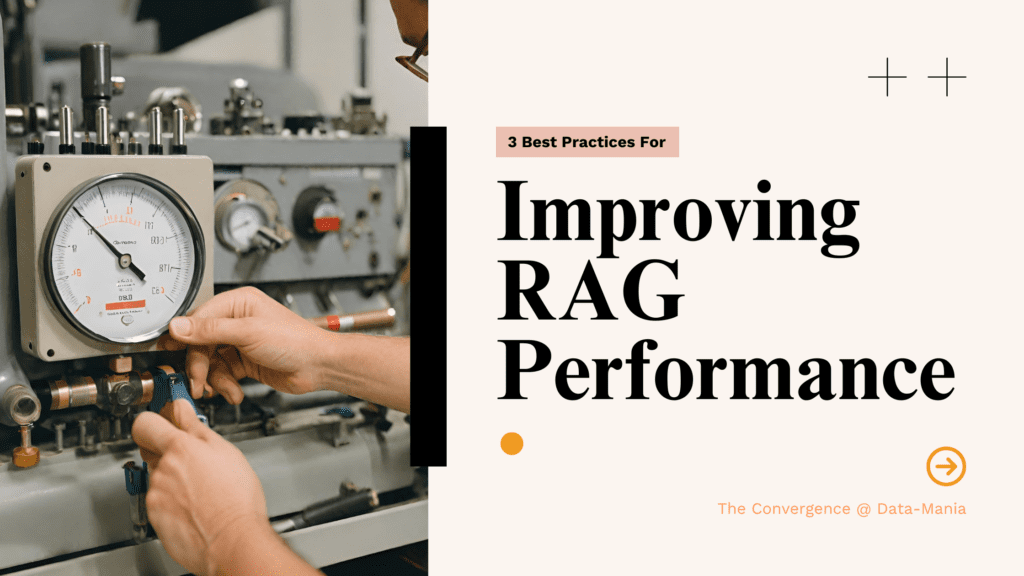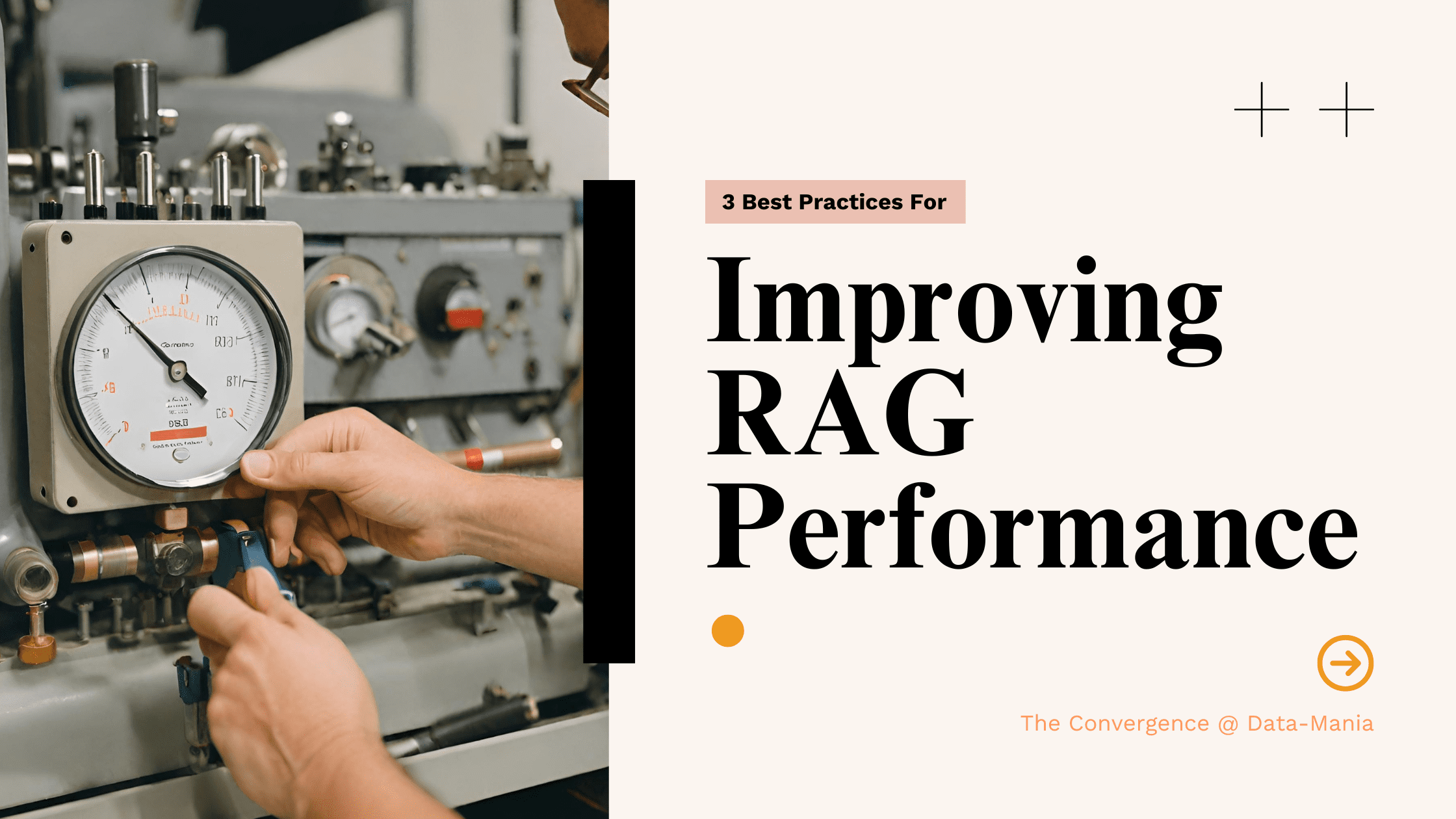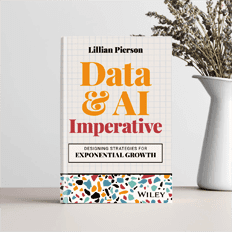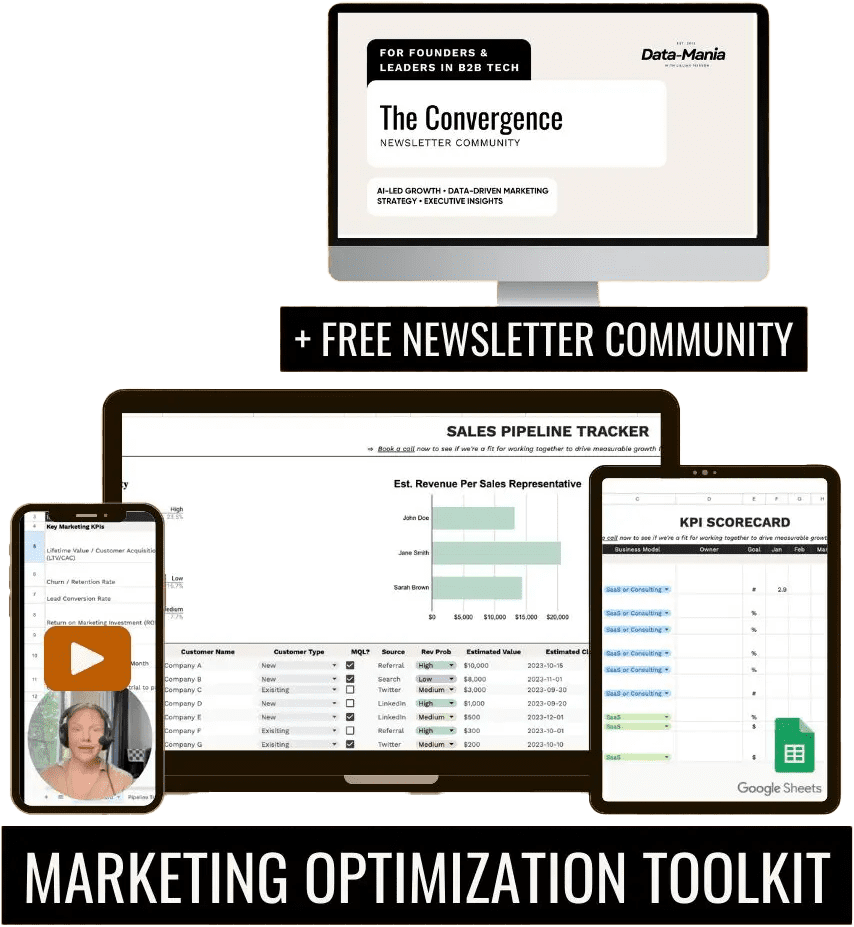You know when you need support for a product and they send you to a stupid chatbot that wastes your time and only provides you outdated or irrelevant responses? So annoying, right?! Well, the sad part is that some human built that untenable “solution”… Today, I come as a bearer of good news. You don’t have to be “that builder”. There are several straightforward best practices you can put into place to improve RAG performance, so that the AI applications you build are actually helpful to other people in real life. And, I’m going to share those best practices with you in this short blog post!

If you’ve been following along with Convergence emails this year, then you already know what RAG is and how it’s helpful. But just in case, RAG stands for Retrieval-Augmented Generation which is a methodology that combines the retrieval of custom user-provided information from a large database with a generative large language model to produce informed and contextually relevant outputs.
If you’re a GPT-4 user then you’re aware of custom GPTs… The ability to upload pdfs and images into your GPT to act as a custom information source is the most accessible user-friendly instance of RAG I’ve ever seen. So, now that you’re clear on what RAG is, let’s talk about best practices you can put into place to improve RAG performance, and where you can go to learn more about building and evaluating RAG applications.
Three Best Practices to Improve RAG Performance, Almost Overnight 😉
Garbage in, garbage out.
You need a solid strategy for selecting reliable information sources for RAG because – well, the quality of your information sources directly impacts the accuracy and reliability of the content that you generate. It’s the principle of garbage in, garbage out. High quality input data leads to outputs that are informed by credible and authoritative information sources. Additionally, a well-defined strategy for selecting information sources helps mitigate the risk of propagating misinformation or biased content. Furthermore, selecting high-quality sources enhances the model’s ability to generate nuanced and contextually relevant responses, which consequently results in significant improvements to user experience and satisfaction.
So, without further ado… my three favorite best practices for selecting reliable information sources to improve RAG performance are detailed below.
Chunking and Indexing with Advanced Retrieval
This best practice involves the preprocessing of data through “chunking”. Chunking is the process of breaking down text into manageable segments for storage in embedding vectors. This method employs a variety of indexing methods, examples of which include constructing multiple indexes for different user questions and routing user queries via an LLM to the appropriate index.
Advanced retrieval methods, including the use of cosine similarity, BM25, custom retrievers, or knowledge graphs, improve the results of the retrieval process. Reranking the results from the retriever and employing query transformations can further refine the accuracy and relevance of the information sourced.
Employing Domain-Specific Pre-Training and Fine-Tuning
This best practice focuses on tailoring the AI’s training to specific domains by extending the original training data, fine-tuning the model, and integrating it with external sources of domain-specific knowledge.
Domain-specific pre-training involves building models that are pre-trained on a large data corpus that represents a wide range of use cases within a specific domain. Fine-tuning these models on a narrower dataset that’s tailored for more specific tasks within the domain tends to improve RAG performance while also reducing the limitations associated with parametric knowledge (eg; context inaccuracy and the potential for generating misleading information).
Improve RAG Performance by Integrating with Non-Parametric Knowledge
This best practice addresses the limitations of LLMs by grounding their parametric knowledge with external, non-parametric knowledge from an information retrieval system. By passing this knowledge as additional context within the prompt to the LLM, it can significantly limit hallucinations and enhance the accuracy and relevancy of responses. This approach allows for the easy update of the knowledge base without changing the LLM parameters and enables responses that cite sources for human verification.
While, taken collectively, these best practices promise to improve the accuracy, reliability, and context relevance of responses generated by RAG systems, there is more you can do to improve RAG performance. For that, I encourage you to attend this free on-demand training session, which is a beginner’s guide to building & evaluating RAG applications.
A Beginner’s Guide to Building & Evaluating RAG Applications
Join us for an exclusive on-demand training that’s designed to demystify RAG and its place in the world of LLMs and precise information retrieval.
You’ll see the mechanics of how RAG is revolutionizing text generation, while also learning how to leverage RAG in your own projects right away.
Whether you’re new to the genAI field or just looking to improve your skills, this session will provide incredible insights into building and evaluating effective RAG applications.
You’ll come away with:
- Foundational knowledge of how RAG works and its transformative impact
- Practical strategies to improve RAG performance by selecting information sources and designing retrieval systems
- Hands-on experience with integrating and optimizing RAG components
- A framework for assessing the performance of your RAG applications
- A glimpse into the future of RAG technology and its expanding role across industries
Don’t miss the opportunity to elevate your expertise with a on-demand demo and code-sharing session!
This is your direct path to implementing and assessing RAG technologies in your projects. Register now to secure your spot in this forward-looking live training so that you can step into the future of AI with confidence.
This post is brought to you as part of a long-term partnership with SingleStore!
Pro-tip: If you like this training on AI implementation in business, consider checking out other free AI app development trainings we are offering here, here, here, here, here, here, here, here, here, here, here, here, here, here, here,here, and here.





